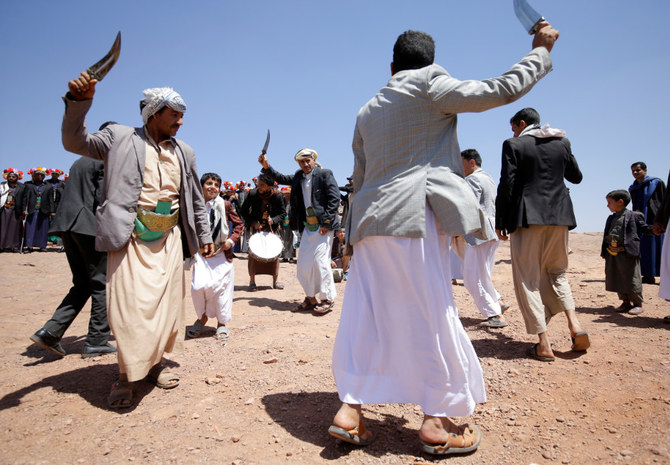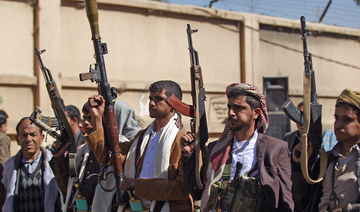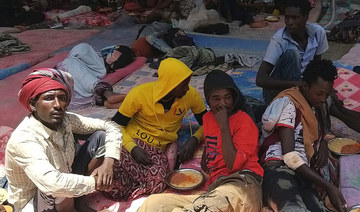AL-MUKALLA: The Houthis have been accused of starting a fire in a migrant detention center in the Yemeni city of Sanaa.
Abdurrahman Barman, a Yemeni human rights advocate and director of the American Center for Justice, said his organization had interviewed some survivors who accused the militia of starting the March 7 fire and squeezing hundreds of Ethiopians into the center, leading to overcrowding.
He criticized international organizations and the international community for not strongly condemning the Houthis’ actions.
“This is a heinous crime,” he told Arab News. “The world would have made a scene if the burnt migrants were white. If the perpetrators were not the Houthis, the (UN) Security Council would have convened immediately.”
He said the Houthis had prevented the organization’s monitors from visiting survivors at Sanaa hospitals and that, based on survivors’ accounts, the number of dead migrants was between 200 and 300.
Mwatana, a leading Yemeni human rights organization, also blamed the Houthis for the fire and accused them of arbitrarily detaining survivors and relatives of the victims in order to stop them from talking about the incident.
“The Ansar Allah (Houthi) group caused the death and injury of scores of African migrants by starting a deadly fire in an overcrowded detention facility in Sanaa on March 7,” Mwatana said in a statement.
The Eritrean community in Yemen said that 34 migrants were killed and 200 were injured in the fire which, it said, started when police sought to resolve a quarrel between two groups.
Yemeni officials and activists disputed the figure, saying the statement had been obtained at gunpoint since it shifted responsibility for the fire from the Houthis to the International Migration Organization for not expanding and rehabilitating detention centers for migrants in Houthi-controlled areas.
Yemeni Information Minister Muammar Al-Eryani said the Houthis had begun intimidating survivors and their families to influence their accounts to the media or any international probe in the future.
He described the deadly fire as a “heinous massacre” and said that survivors and other witnesses would not give fair testimonies if they remained inside Houthi-controlled areas. He urged the UN migration agency to evacuate them to other locations, away from Houthi pressure.
“We warn of threats and pressures by the terrorist Houthi militia on the survivors and families of fire victims who died in the genocide that aroused Yemeni and international public opinion to force them to hide the truth in anticipation of an international investigation into the crime,” he tweeted.
In Aden, the Yemeni Cabinet said the international community had contradicted its ethical and humanitarian norms for not taking a tough stance on the Houthi crime against migrants, warning that “timid condemnations” would encourage the Houthis into committing more crimes.
Ali Al-Fakih, editor of Al-Masdar Online, said the international community’s tolerance of Houthi crimes against Yemenis had bolstered the rebels into starting the detention center fire.
“This is a heinous crime against humanity,” he added, accusing the Houthis of deliberately killing Africans who refused to take part in the war or pay levies.
“I think it is one of the results of the international community’s tolerance of Houthi crimes against civilians for years. The Ethiopian government should make a strong move by demanding the UN and international organizations to investigate the crime and punish the perpetrators.”
























